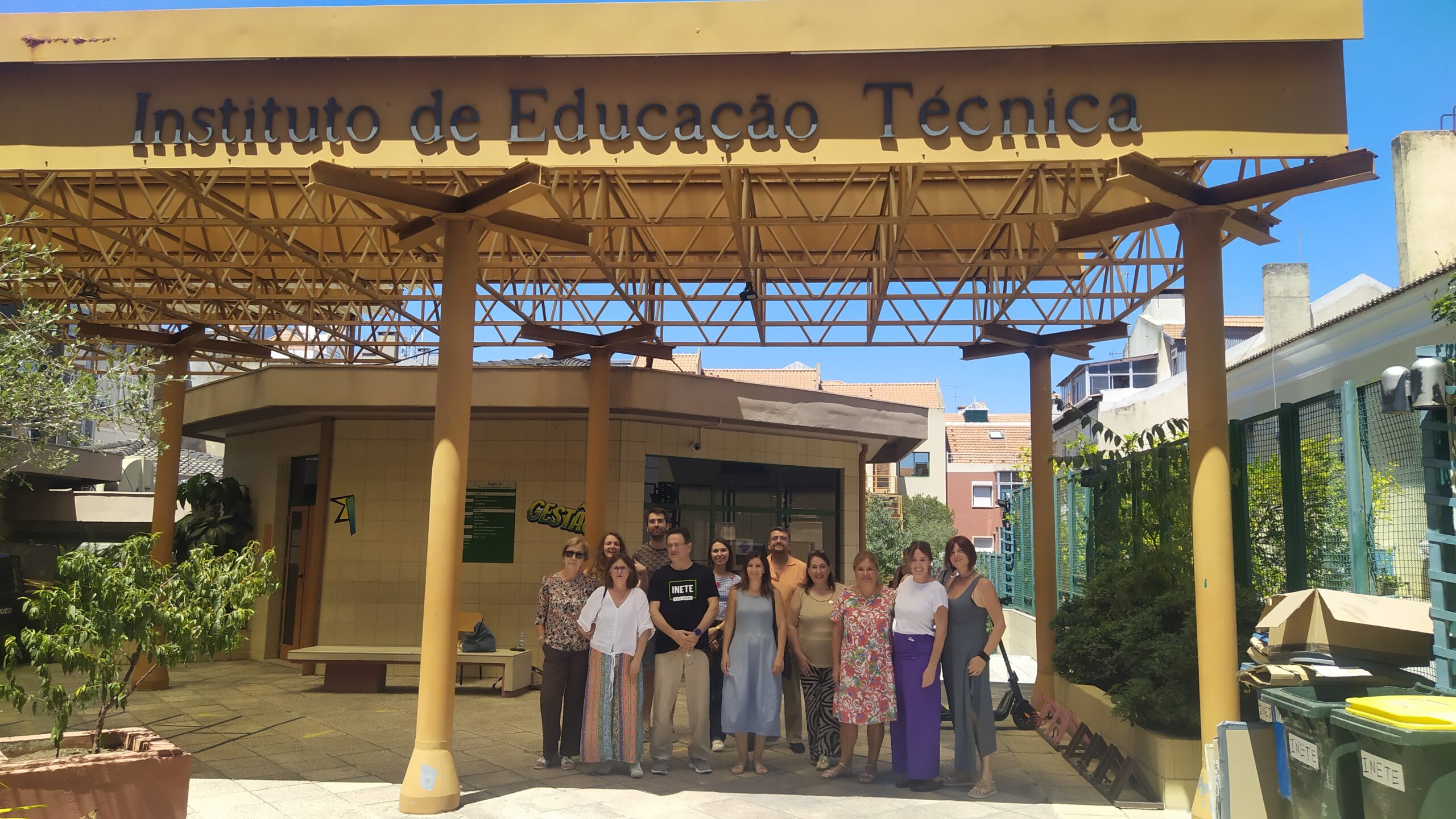From July 23rd to 25th, 2024, a significant event in the field of Vocational Education and Training (VET) took place at INETE – Instituto de Educação Técnica – in Lisbon. This meeting of the ambitious project DI-STRUCT! brought together partners and teachers from Hungary, Portugal, France and Italy.
This project, focused on the theme of digitalization in VET schools, provided a platform for educators to discuss and exchange ideas about the future of education in an increasingly digital world. The event kicked off with an inspirational keynote speech by Dr. João Santos: “Digital Transformation in Vocational Education: Opportunities and Challenges.” Dr. Santos emphasized that the rapid advancement of digital tools offers both opportunities and challenges for VET institutions. Digital transformation goes beyond simply adopting new technologies; it requires a fundamental rethinking of how education is delivered to ensure it is accessible, inclusive, and aligned with the needs of the modern workforce. Dr. Santos’ speech set the tone for the rest of the event, inspiring participants to reflect on their own practices and consider how they could leverage digital tools to enhance their teaching methods. Emphasis was placed on the need for both teachers and students to develop strong digital competencies. Discussions highlighted the importance of supportive policies and governance structures to facilitate the digital transformation of education.
A very valuable aspect of the event was the opportunity to engage with teachers from different countries. The atmosphere during the meeting was one of enthusiastic and fruitful collaboration. Participants eagerly exchanged ideas, shared best practices, and brainstormed solutions to common challenges. Workshops and breakout sessions were particularly dynamic, with groups working together to develop new strategies for incorporating digital content into their teaching. Participants shared various innovative teaching methods that leverage digital tools to enhance learning. Examples included flipped classrooms, gamification, and the use of virtual to create immersive learning experiences. The event, surely, aimed to explore the integration of digital technologies in education, share best practices, and discuss the future of digital learning.
The meeting, also, addressed several challenges in the digitalization of education, such as the digital divide, lack of infrastructure, and the need for ongoing professional development for teachers. Strategies to overcome these barriers were discussed.
Outside of the formal sessions, the event also offered opportunities for participants to experience the culture and hospitality of Lisbon. A highlight was the social dinner, held in a charming local restaurant, where attendees enjoyed traditional Portuguese cuisine while being serenaded by live fado music. The soulful, melancholic melodies of fado, a genre deeply rooted in Portuguese culture, provided a poignant backdrop to the evening, reminding everyone of the importance of preserving cultural heritage even as we embrace the digital future.
The food served throughout the event was another highlight, showcasing the rich culinary traditions of Portugal. Lunch and coffee breaks featured a variety of local dishes, including the famous bacalhau (salted codfish) and the irresistible pasteis de nata (custard tarts). These meals were not just a chance to refuel but also an opportunity to continue conversations in a more relaxed setting, strengthening the bonds between participants.
As the event drew to a close, there was a strong sense of accomplishment and optimism among the attendees. The meeting in Lisbon had not only provided valuable insights into the challenges and opportunities of digitalization in VET, but had also fostered a spirit of collaboration that would continue – hopefully – long after the event.
In our opinion, the closing meeting of this international project was a resounding success. It demonstrated that, despite the challenges, digitalization offers tremendous potential for transforming vocational education. By working together and sharing our experiences, we can ensure that all students, regardless of their background, have access to high-quality, digitally-enhanced education. And, as the event in Lisbon proved, we are all digital content creators, capable of shaping the future of education in ways we never imagined.




